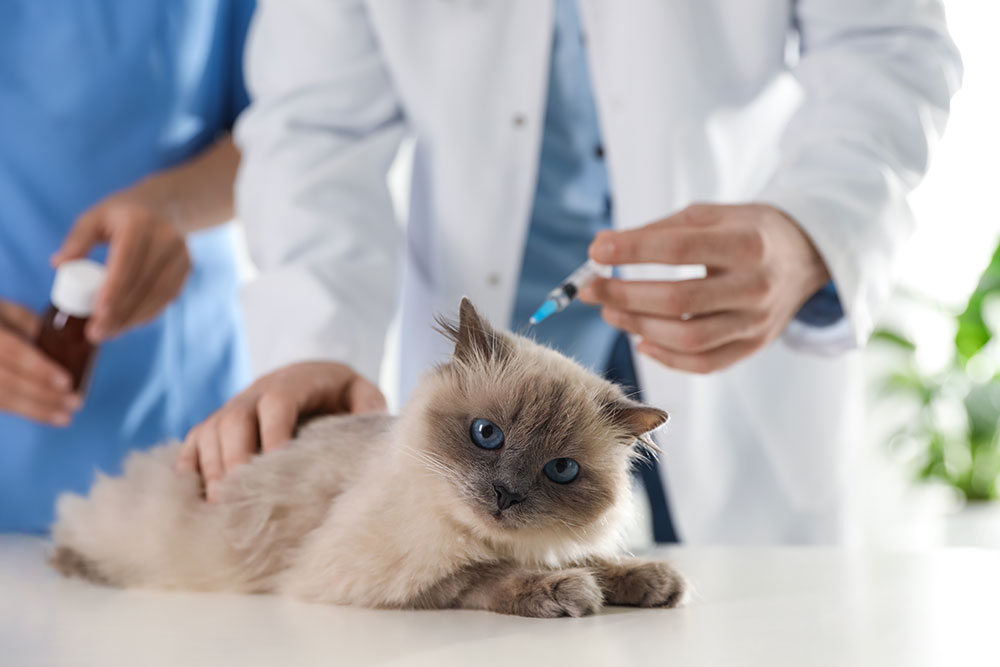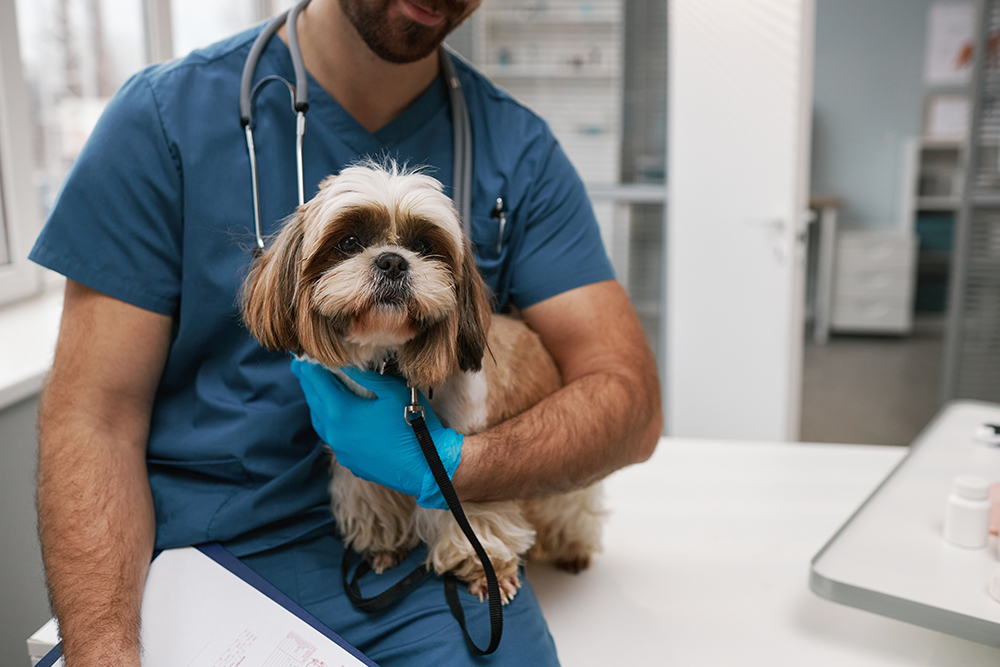Vaccines are one of the simplest, most effective ways to protect your pet from dangerous and often fatal diseases. But not all vaccines are the same—and neither are the pets who receive them.
At Creature Comforts Veterinary Service, we customize every vaccination plan based on your pet’s age, breed, health status, and lifestyle. Whether you’ve just welcomed a new puppy or are caring for a senior cat, we’re here to ensure your pet is protected at every stage of life.
Why Vaccines Matter: Not Just for Puppies and Kittens
Vaccines work by preparing your pet’s immune system to recognize and fight off specific pathogens. Some diseases are so dangerous or widespread that nearly every pet should be vaccinated for them. Others depend on lifestyle—where your pet goes, who they meet, and how often they’re exposed.
Vaccination doesn’t just protect your pet—it helps safeguard your family and your community from zoonotic diseases like rabies and leptospirosis.
More on zoonotic risk – World Rabies Day: Can My Pet Get Rabies?
Core Vaccines for Dogs
These are the vaccines recommended for all dogs, regardless of lifestyle.
Rabies
- What it is: A deadly viral disease that affects the brain and nerves—transmissible to humans.
- Why it matters: Fatal once symptoms appear. Legally required in PA.
- Schedule: First dose at 12–16 weeks, booster at 1 year, then every 1–3 years.
Canine Distemper
- What it is: A severe viral disease affecting the respiratory, gastrointestinal, and nervous systems.
- Symptoms: Fever, coughing, vomiting, seizures, and neurological issues.
- Often combined in DHPP or DAPP vaccines.
Parvovirus
- What it is: A highly contagious and often deadly GI virus.
- Symptoms: Bloody diarrhea, vomiting, dehydration, lethargy.
- Spread via: Feces, contaminated surfaces, or even shoes.
Adenovirus (Canine Hepatitis)
- Affects the liver, eyes, and blood vessels.
- Included in the DHPP/DAPP combo shot.
Lifestyle-Based (Non-Core) Vaccines for Dogs
These vaccines are recommended based on risk factors like location, activities, or boarding needs.
Bordetella (Kennel Cough)
- For dogs that board, visit daycares, grooming salons, or parks.
- Kennel Cough Overview – AKC
Leptospirosis
- A bacterial disease spread through urine-contaminated water (e.g., puddles, lakes).
- Zoonotic and potentially fatal.
- Learn more about Leptospirosis in Pets – AAHA
Lyme Disease
- Transmitted by ticks.
- Common in the Northeast and in outdoor dogs.
- Preventable with both vaccination and tick control.
Core Vaccines for Cats
Feline vaccines protect against deadly viral infections—some of which can spread even without direct contact.
Rabies
- Required by law in many states and crucial for indoor and outdoor cats alike.
Feline Panleukopenia (Distemper)
- A parvovirus that causes fever, vomiting, diarrhea, and death—especially in kittens.
- Highly contagious and often fatal.
Feline Herpesvirus (FHV) & Calicivirus (FCV)
- Both cause upper respiratory infections.
- Spread by sneezing, grooming, and contaminated surfaces.
- Feline URI Resource – ASPCA
These are usually administered together as the FVRCP combo vaccine.
Lifestyle-Based (Non-Core) Vaccines for Cats
Feline Leukemia Virus (FeLV)
- What it is: A virus that suppresses the immune system and can lead to cancer.
- Who needs it: Outdoor cats or those in multi-cat homes.
- More on Vaccine Risks & Benefits – Cornell
Puppy & Kitten Vaccination Timeline
Initial Series (6–8 Weeks Old)
- Puppies: DHPP every 3–4 weeks until 16–20 weeks
- Kittens: FVRCP every 3–4 weeks until 16–20 weeks
Rabies
- Given at 12–16 weeks
- Required by law
Boosters
- 1 year after final puppy/kitten shot
- Then every 1–3 years depending on vaccine type and risk
More on Dog Life Stages – AAHA
Understanding Your Cat’s Life Stages – AAHA
Adult & Senior Pets: Staying Protected
Vaccination doesn’t end in puppyhood. Immunity fades, lifestyles change, and disease risks evolve. Adult pets need:
- Rabies boosters every 1–3 years
- DHPP or FVRCP updates every 3 years (in most cases)
- Lifestyle-based vaccines updated annually (e.g., Bordetella, Lyme)
For seniors, your vet may recommend modified schedules based on:
- Existing health conditions
- Decreased immune function
- Risk-benefit analysis
Are Vaccines Safe?
Common Reactions
- Mild: Fatigue, swelling at injection site, low-grade fever
- Moderate to rare: Vomiting, facial swelling, hives
- Severe (very rare): Anaphylaxis – requires immediate vet attention
Vaccines are extremely safe when administered properly. Our team closely monitors pets after vaccination and uses high-quality, vet-approved products only.

When to Call Us
Contact Creature Comforts Veterinary Service immediately if your pet shows:
- Swelling around face or neck
- Difficulty breathing
- Lameness or collapse
- Vomiting within hours post-vaccine
And of course, reach out with any questions about what your pet is due for or whether a vaccine is right for their lifestyle.
Protect What Matters Most
Vaccines are a simple way to give your pet a long, healthy life. They prevent suffering, lower your risk of expensive treatments, and protect the community around you.
If you’re unsure what vaccines your pet needs—or whether they’re up to date—let’s talk.
Schedule a visit or contact us here
We’ll build a custom vaccination plan that protects your pet from puppyhood to their golden years.







Leave A Comment